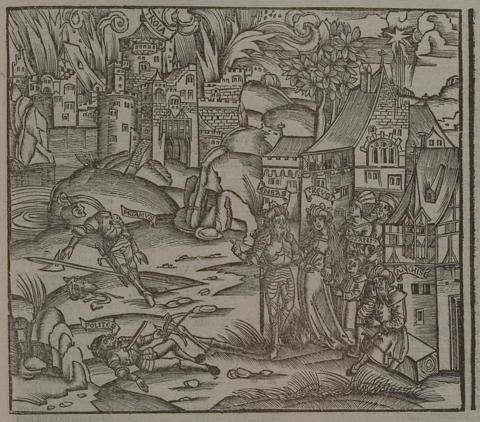CORE VOCABULARY
accingō, cīnxī, cīnctus (pass. inf., accingier, 4.493), 3, a.: to gird on; gird, 2.614; arm, equip, 6.184; make one’s self ready; prepare, 1.210; resort to, 4.493. (ad and cingō)
clipeus, ī, m., and clipeum, ī, n.: a round shield; a shield, 2.227, et al.
sinistra, ae, f. (sc. manus): the left hand, 2.443, et al.
īnsertō, 1, freq. a.: to put or thrust into; pass through, 2.672. (īnserō)
aptō, āvī, ātus, 1, a.: to fit, join, or fasten to; with acc. and dat., 8.721; put on, 2.390; get ready, prepare, 10.259; fit out, prepare, 1.552; with abl. of manner, 8.80. (aptus)
extrā, prep. w. acc.: outside of, beyond, 6.796; out of; from, 2.672. (exterā, abl. of exter)
complector, plexus sum, 3, dep. a.: to embrace; cover, 2.514; hold, 5.31; seize, grasp, 11.743.
haereō, haesī, haesus, 2, n.: to stick; foll. by dat., or by abl. w. or without a prep.; hang, cling, adhere, cling to, 1.476, et al.; stop, stand fixed, 6.559; halt, 11.699; adhere to as companion, 10.780; stick to in the chase, 12.754; persist, 2.654; dwell, 4.4; pause, hesitate, 3.597; be fixed or decreed, 4.614.
Iūlus, ī, m.: Iulus or Ascanius, son of Aeneas, 1.267, et freq.
sīn: (conj.), but if, if on the contrary, 1.555, et al.
tūtor, āvī, ātus sum, 1, dep. intens. a.: to protect, defend, 2.677; befriend, 5.343. (tueor)

